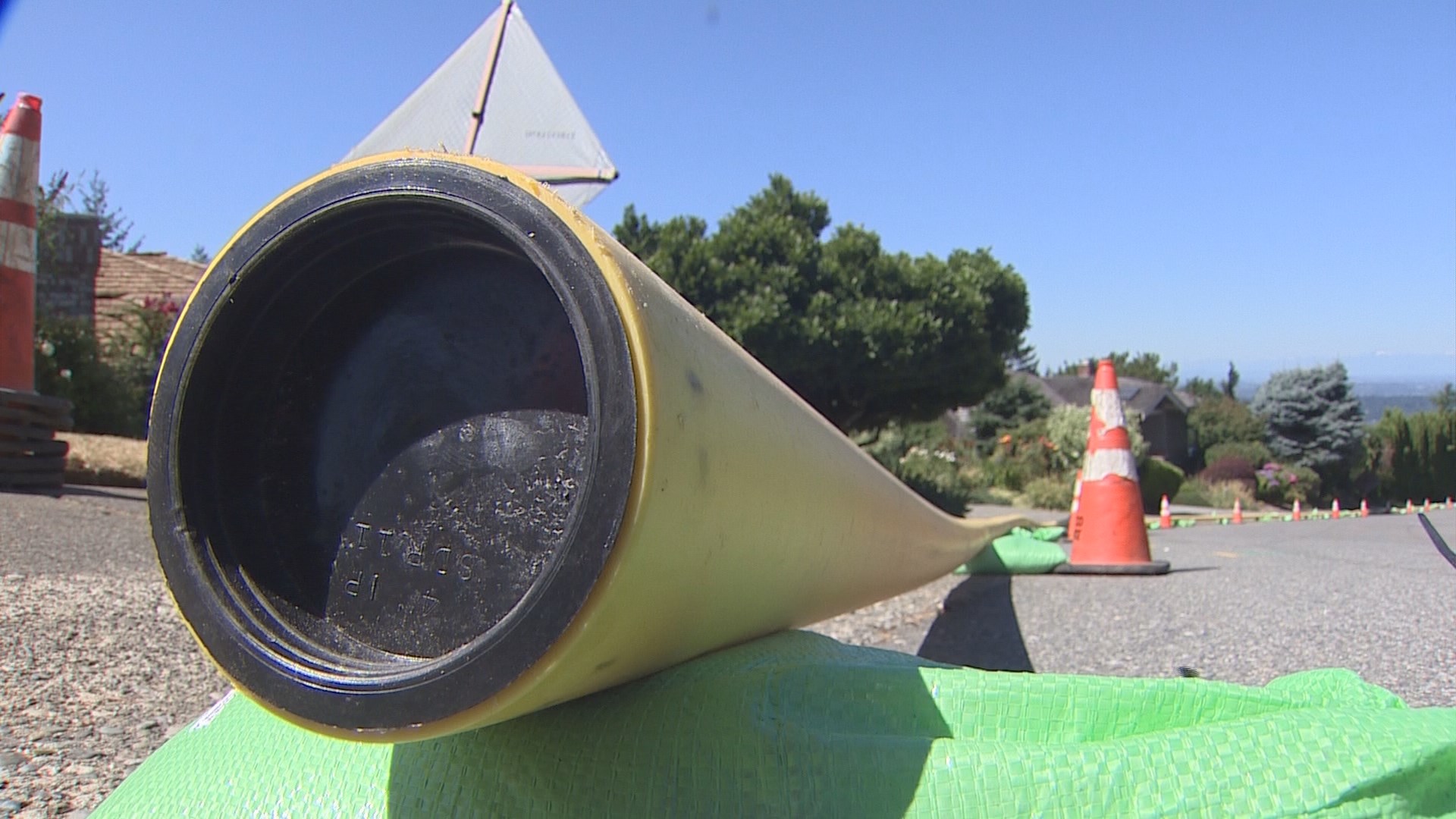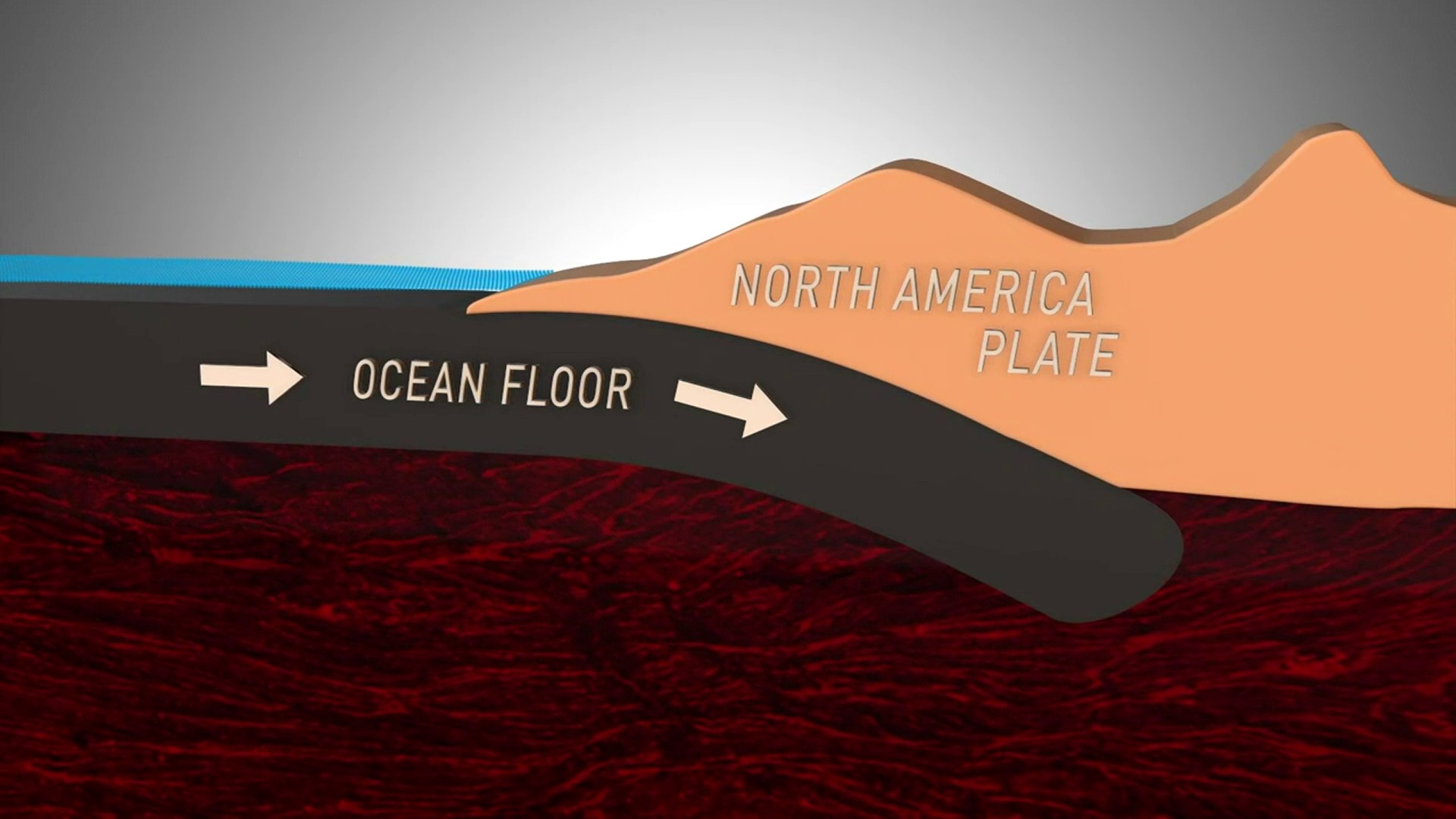Puget Sound Energy says it's replaced 8,000 miles of its 12,000 mile network of gas mains, much it with material that can withstand earthquakes.
The latest flexible plastic pipe, while used widely around the country, is perfect for quake country as it's both strong and flexible.
PSE began replacing century old, brittle cast iron pipe in the 1990's. All that pipe is now gone, as it often developed leaks at the joints and was vulnerable in earthquakes. Even earlier generations of plastic pipe laid down in the 1970's and 1980's showed a tendency to develop cracks and leaks when exposed to pressure from rocks buried with the pipe in the streets.
The new pipe is much more resistant to cracking, says Duane Henderson, who works in the gas system integrity section of PSE. The newer pipe can better flex with earthquake waves, but would still be vulnerable to sheer forces, such as landslides that could break the pipe cross ways.
Henderson also reiterated updated advise on what homeowners should do in an earthquake. If you don't smell gas, that rotten egg smell, don't turn off your gas. If you do smell gas, turn off the valve with a crescent wrench at the meter outside your home or apartment. There are also simple special tools you can buy instead of a crescent wrench and keep tied to the meter.
The valve has a flat protruding metal lug and rotates. If it's 90 degrees or cross ways to the direction of the pipe, the gas should be off. If it is in line with the pipe, the gas is flowing.
Join KING 5’s Disaster Preparedness Facebook group and learn how you and your community can get ready for when disaster strikes.


